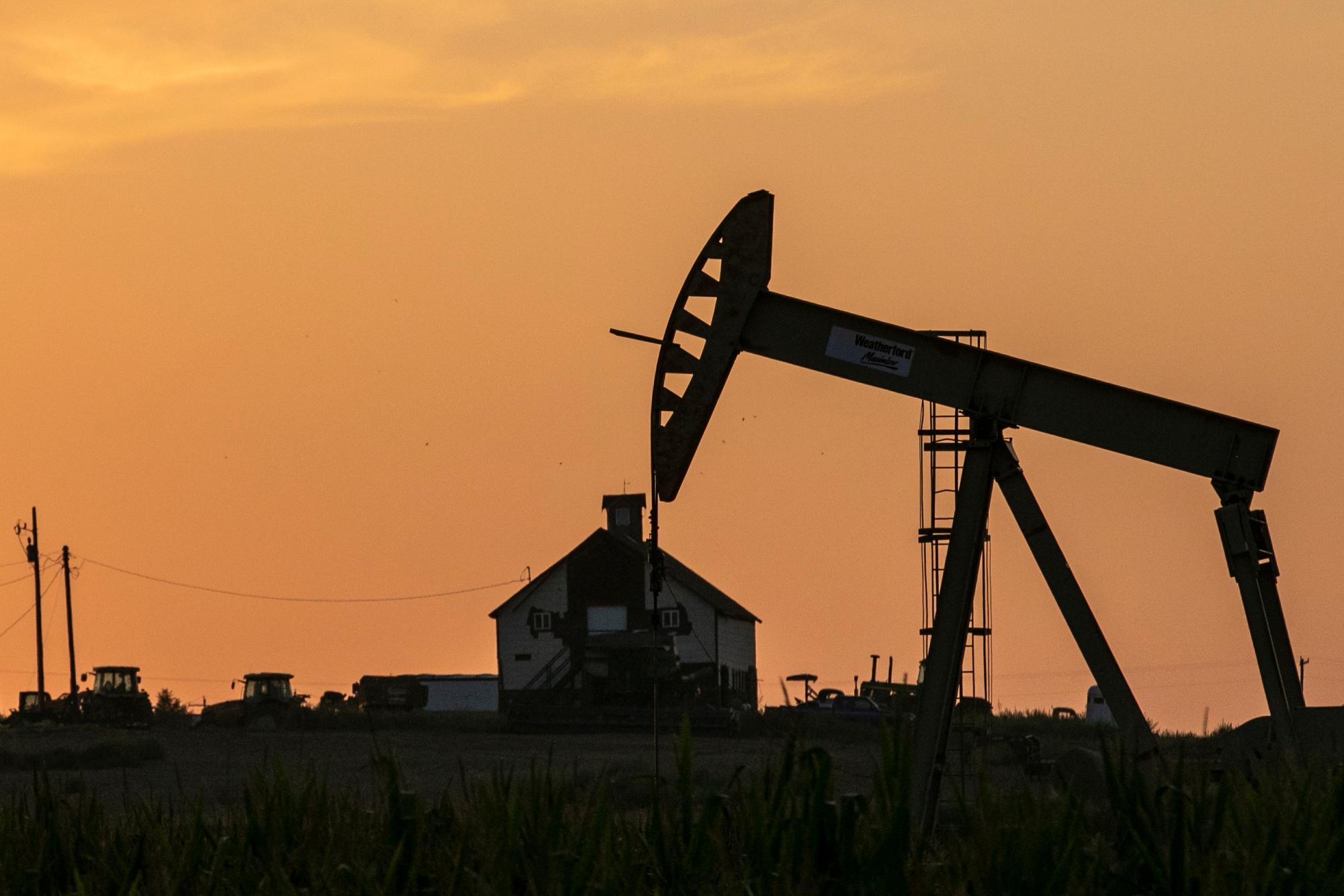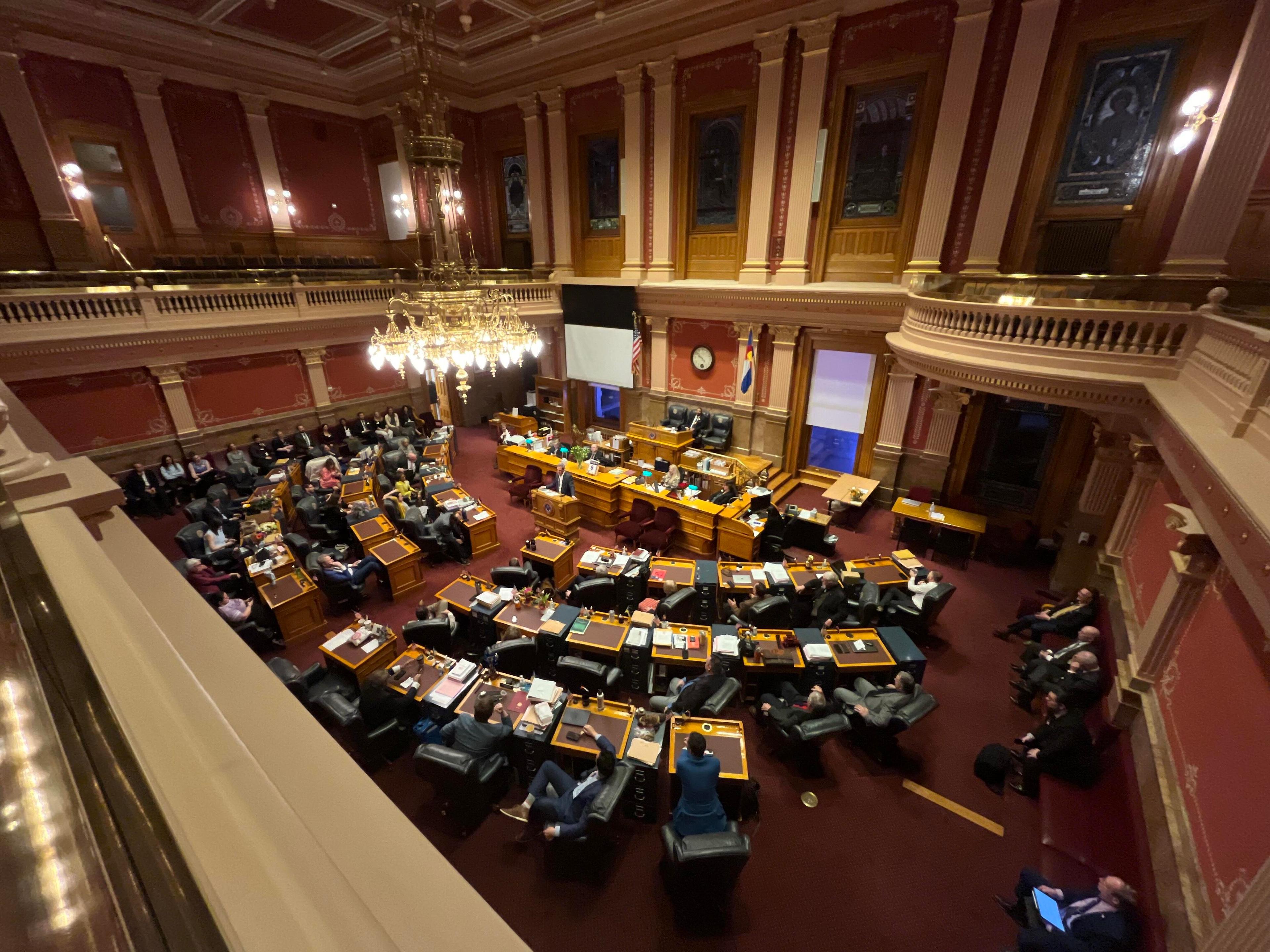
Politics has replaced science and technology as the main obstacle to aggressive policies necessary to avoid the worst consequences of a warmer world, scientists conclude in a new report from the United Nation’s Intergovernmental Panel on Climate Change released Monday.
The 2,900-page document details the necessary steps to put the planet on track to meet international climate targets. It also cites research that finds conservative foundations and the U.S. oil and gas industry have fueled public confusion around climate science. Traditional news outlets and social media have often provided a platform for those efforts, according to the authors.
Max Boykoff, a climate communications researcher and the chair of environmental studies at the University of Colorado Boulder, contributed some of those insights. While he’s glad the IPCC included points on “climate obstructionism,” he also wasn’t surprised to see it excluded from a summary for policymakers and press releases.
“Any time any government is uncomfortable with clear writing linked to fossil fuel interest or corporate lobbying, those can get stuck,” he said Tuesday in an interview with Colorado Matters host Andrea Dukakis.
Here’s a version of their conversation, edited for length and clarity.
This is the third IPCC report in just the last 12 months. What’s the difference with this one?
Boykoff: The first report came out in the fall of last year. It is about the physical, natural science dimensions of climate change. The second report was focused on adaptation and impacts. This third report is focused on mitigation as well as policy action or action. There will be a fourth report coming out at the end of September on synthesizing the three, but this is really the third of the three major reports.
What was your contribution to it?
Boykoff: I was invited in as a contributing author. There's a set of main authors, and then there's a set of us contributing authors. Over 600 people total contributed to this report.
I had been asked to write on media representational practices and how they influence our attitudes, intentions, beliefs, perspectives, and behaviors around climate change. I was also asked to write about social norms and actions as well as policy dimensions. Finally, I added points on climate change countermovements — groups that tend to obstruct deliberately active climate action.
Our climate team went looking through this part of the report. Your conclusions on climate misinformation are buried deep in its pages. Is that what you expected?
Boykoff: Yes. It is a step forward. This is the first time that climate obstructionism has really been put within the report itself, but you have to go looking in the technical summary or the full report to go find any of it.
It’s not in the summary for policymakers, which is what most people read has to be signed off by 195 governments. Over the last two weeks, negotiators have gone line by line through the summary in plenary sessions. Anytime any government is uncomfortable with clear writing linked to fossil fuel interests or corporate lobbying, those can get stuck.
So I'm not surprised that it didn't appear in this summary for policymakers, but the technical summary and the full report are under the control of the authors. The language did make it into those documents.
A press conference Monday really spoke to what we’re talking about. Jim Skea, an IPCC chair, noted politics are the main barrier to climate action, but when a reporter asked him to name specific politicians, he said it’s not the IPCC’s job to comment on the policies of individual countries or corporations. What did you make of that?
Boykoff: It demonstrates some of the limits of the IPCC. Since it was formed in 1988, the panel developed this mantra of “policy-relevant, not policy-prescriptive.” That’s really proven to be a tough tightrope to walk, especially when we get to this point where we can no longer ignore the fact that politics and status quo interests are the primary barriers — not science, technology or money.
It’s part of the job of contributors like me to be able to answer that question. Some of the social science work found the 90 latest industrial carbon producers are responsible for nearly two-thirds of industrial greenhouse gases emitted into the atmosphere since the Industrial Revolution.
There’s been an active campaign to put the responsibility on us as individuals and consumers. On the one hand, we are all responsible. On the other, if we only limit the possibilities to individualized, atomized actions, we only make modest greenhouse gas reductions. We need to confront this for what it is. We need better building codes. We need better urban planning. We need better vehicle efficiency standards. This is about policy and leadership going forward.








